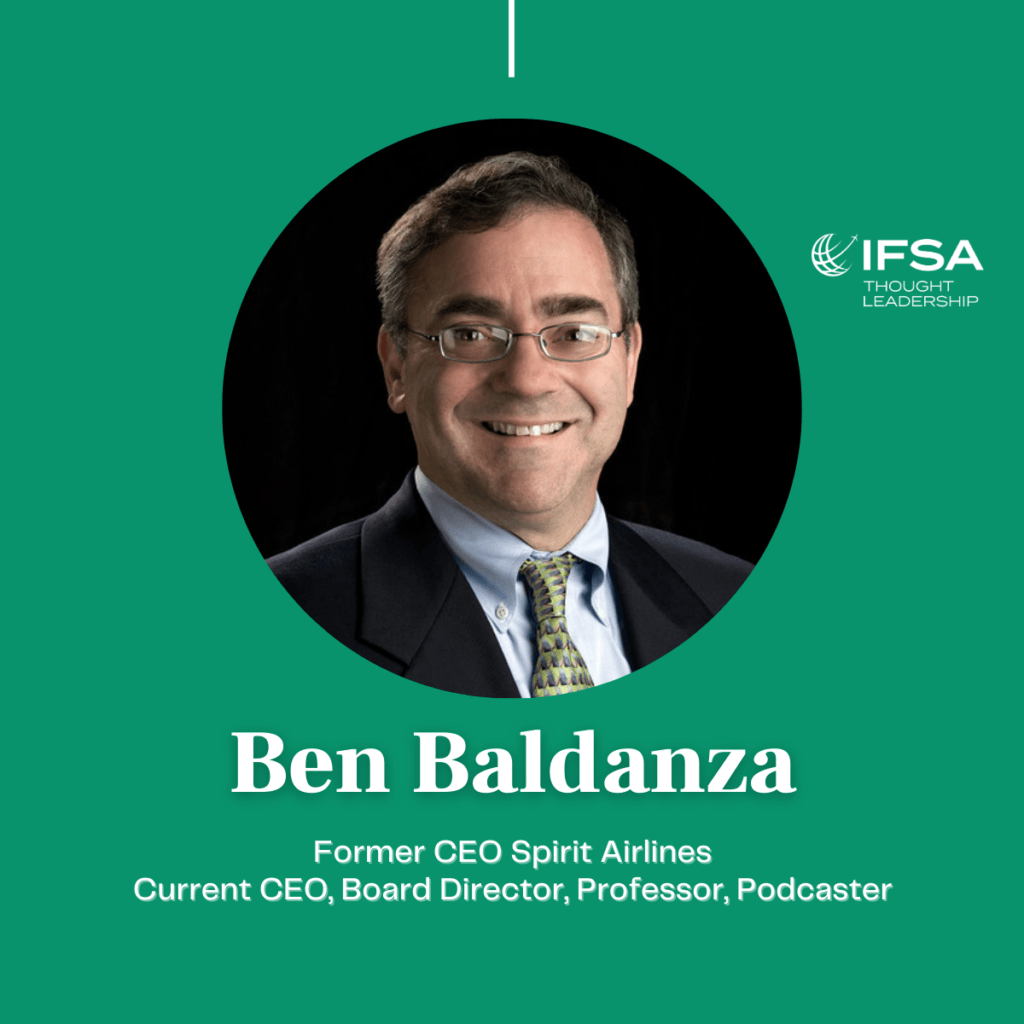Sneak Peek: IFSA’s Virtual Thought Leadership Series with Ben Baldanza
Share

Ben Baldanza has led a storied career, making him the perfect candidate to kick off IFSA’s Virtual Thought Leadership Series on March 31. After holding executive positions at Continental Airlines and US Airways, he became president and CEO of Spirit Airlines in 2005. Today, he sits on the board of JetBlue Airways.
How would you summarize the impact of the COVID-19 pandemic on the aviation industry?
In one word: disaster. Airlines were well positioned and solidly profitable before the pandemic. Now, a year later, most are still losing cash daily and the return of air traffic is far from certain.
Travel is reaching new heights this month, according to TSA passenger counts. What do you make of this? Is a high level of domestic travel safe without enough people vaccinated and without the widespread use of health passports?
As more people are vaccinated, more people are comfortable flying. Airlines have done a good job explaining to people that being on a plane is not a high transference risk, given the filtering, air flow, required masks, and everyone facing forward. Widespread use of health passports will be more important for traveling internationally.
What’s the most important trend to have emerged from the COVID-19 pandemic?
I would say a likely permanently-heightened sense of biological safety in crowds and unfamiliar situations, and thus likely long-term continued use of mask wearing.
Have the business models of flight service companies been affected by new regulations? Are these rules appropriate, in your opinion?
Requiring mask wearing, an effort led by JetBlue, was smart. Some things make people feel comfortable but don’t do much to help, like temperature checks. The regulations requiring quarantines have been very damaging to all travel companies.
You led the transformation of Spirit’s business model. What’s one lesson you learned during that time that applies to the COVID era?
That low-cost airlines are the best prepared to recover faster and be less damaged than large network carriers. There are multiple reasons for this:
A) Lower costs means a return to positive cash flow more quickly.
B) They mostly offer point-to-point service versus requiring passengers to connect.
C) There are no wide-body aircraft to burden the company.

The IFSA Virtual Thought Leadership Series begins on 31 March at 12 p.m. EDT with featured speaker Ben Baldanza, former Spirit Airlines CEO. This session will explore the impact the past year has had on the aviation market. What trends and regulations have emerged? How will these impact business models moving forward? Ben will impart valuable insights based on his diverse set of business experiences and willingness to challenge current conventions. Register today!


